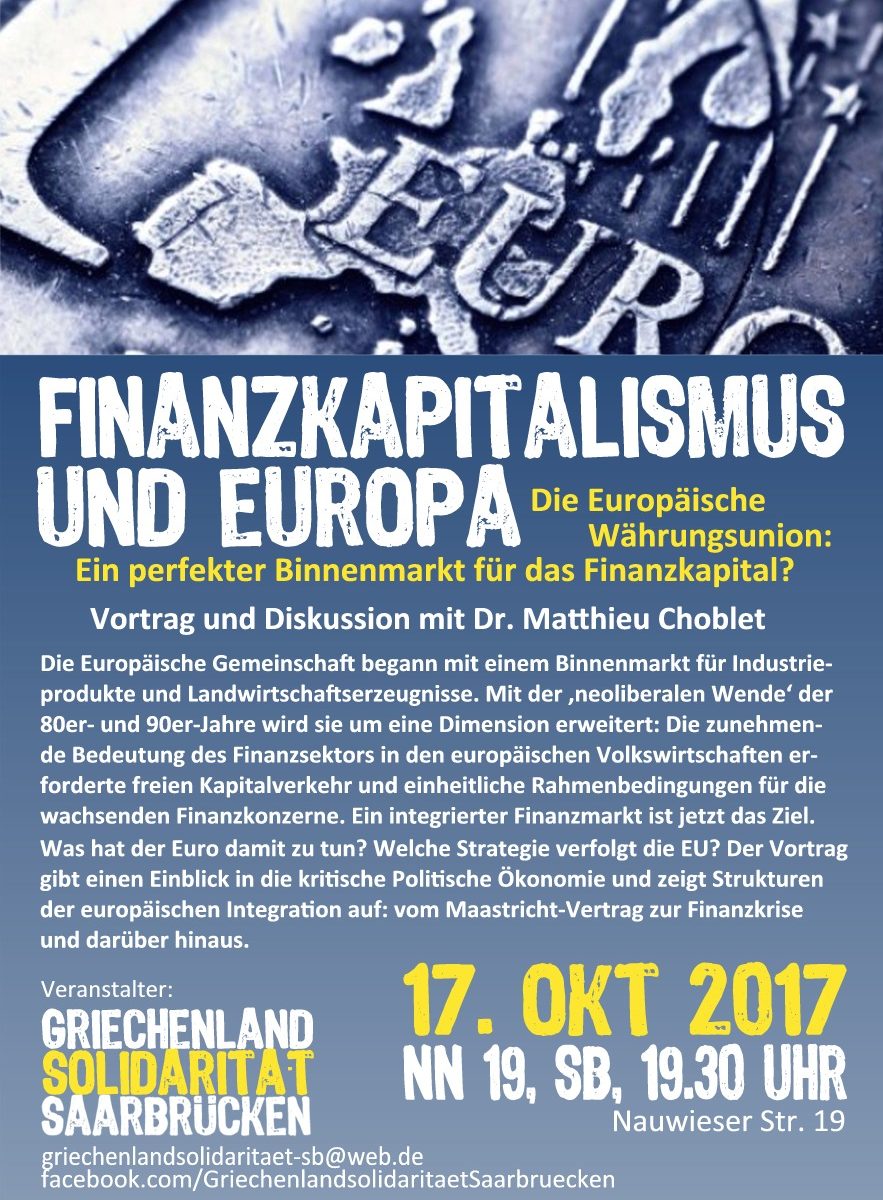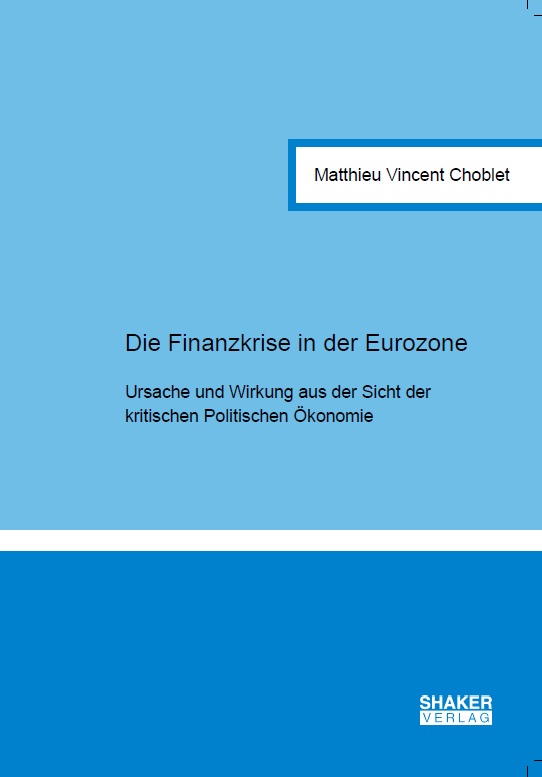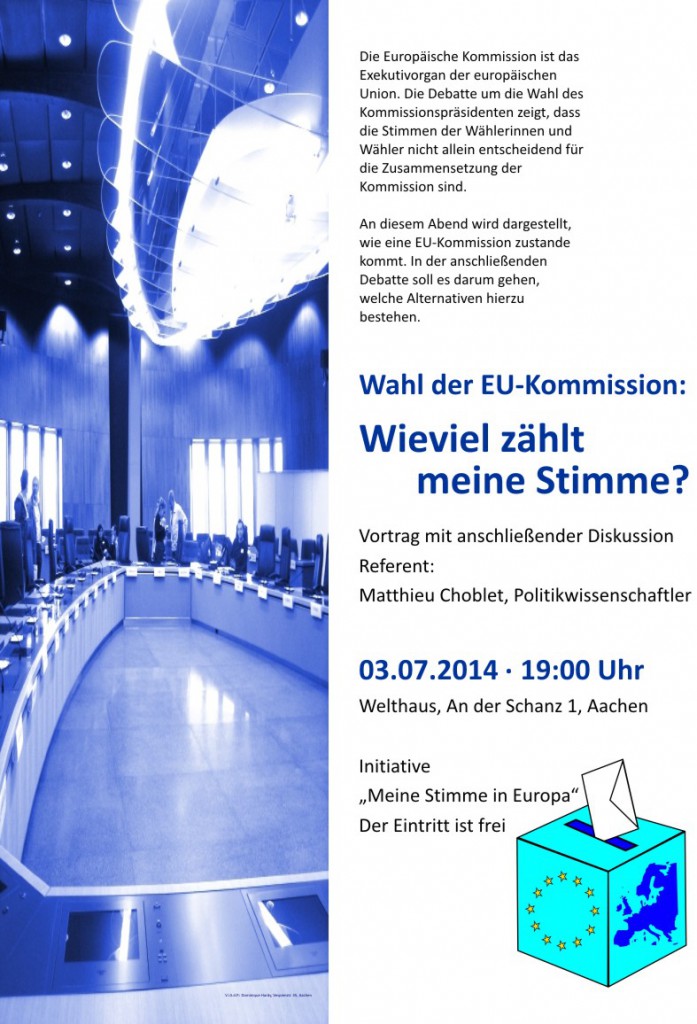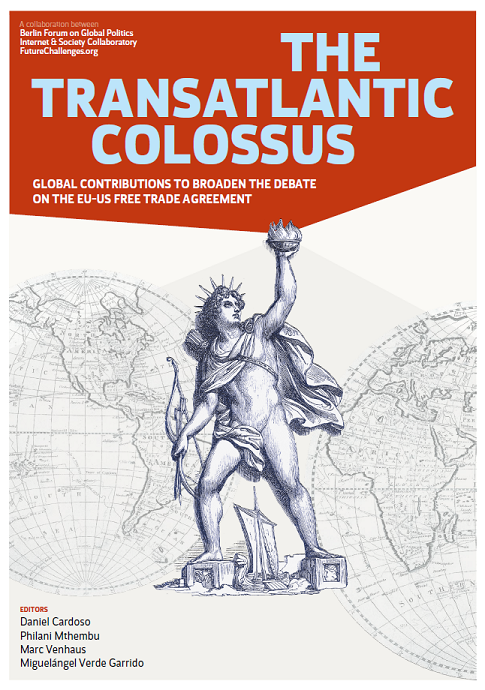Notizen und Anmerkungen:
„Das Urteil des Bundesverfassungsgerichts vom 5. Mai 2020 (EZB und „ultra vires“)“ weiterlesenVortrag: Griechenland und die Eurokrise
Vortrag: Die Europäische Währungsunion
Die Europäische Währungsunion: Ein perfekter Binnenmarkt für das Finanzkapital?
Dienstag, den 17. Oktober, 19:30 Uhr
NN 19, Nauwieserstraße 19, Saarbrücken
Die Europäische Gemeinschaft begann mit einem Binnenmarkt für Industrieprodukte und Landwirtschaftserzeugnisse. Mit der ‚neoliberalen Wende‘ der 80er- und 90er-Jahre wird sie um eine Dimension erweitert: Die wachsende Bedeutung des Finanzsektors in den europäischen Volkswirtschaften erforderte freien Kapitalverkehr und möglichst einheitliche Rahmenbedingungen für die wachsenden Finanzkonzerne. Ein integrierter europäischer Finanzmarkt ist jetzt das Ziel.
Veröffentlichung: Die Finanzkrise in der Eurozone
Meine Dissertation Die Finanzkrise in der Eurozone – Ursache und Wirkung aus der Sicht der kritischen Politischen Ökonomie wurde 2014 im Shaker Verlag veröffentlicht (ISBN: 978-3-8440-3106-5).
Buchrückentext:
Die Finanzkrise zu überwinden setzt voraus, sie zu verstehen. So lassen sich mangelndes Verständnis für das Wesen der Krise und die relevanten Zusammenhänge politischer Ökonomie als Ursache für die Unfähigkeit ausmachen, mit ihr umzugehen.
Dieses Buch bietet eine Einführung in die Wissenschaft der Politischen Ökonomie. Es erklärt welche Entwicklungen der Finanzsektor im letzten Jahrzehnt durchlaufen hat und worin die Mängel der Währungsunion liegen. Dabei geht es auch um eine kritische Bewertung von vorherrschenden Deutungen und Diskursen.
Vor diesem Hintergrund werden relevante Ereignisse und wegweisende politische Entscheidungen im Rahmen der Finanzkrise von 2007 bis 2013 systematisch analysiert. Was bedeuten ESM und LTRO? Wie funktionieren der Fiskalpakt und die Anpassungsprogramme? Worin unterscheiden sich Finanzierungshilfen für Banken von denen, die an Staaten wie Griechenland und Irland gerichtet sind? Das Buch erklärt die Verträge und Mechanismen der Krisenpolitik in der Eurozone und zeigt auf, welche ökonomischen, rechtlichen und demokratisch-legitimatorischen Konsequenzen sie haben.
Vortrag: Eine unabhängie Expertenkommission ist autoritär (Aachen, 03.07.2014)
Vortrag für die Veranstaltung “Wieviel zählt meine Stimme?” am 03.07.2014 im Aachener Welthaus.
Das Manuskript meines Vortrags und weiter Informationen zur Veranstaltung finden sich hier.
Vielen Dank an Werner Hager und an den Vorstand von „Meine Stimme in Europa“ für die Unterstützung!
TTIP: What is a trade deal for if it doesn’t even create trade?
by Werner Hager and Matthieu Choblet
a follow-up article on our previous publication on TTIP, originally published on ttip2014.eu
European integration has many purposes, among which maintaining peace is certainly the most valuable. Yet, the main incentives for integration by means of the European Community and the European Union were the growing economic ties between the many states of Europe. The Transatlantic Trade and Investment Partnership (TTIP), which the Commission is currently negotiating with representatives of the US government and the industry on both sides of the Atlantic, is similar to the project of European integration, to the extent that it aims at creating a transatlantic single market. The underlying assumption of such a project would be that it leads to the creation of additional trade, which in turn would strengthen the transatlantic relationship.
Last year a couple of economic studies have been produced which focus on quantitative assessments of the potential economic effects of TTIP. The numbers we find in these studies, though they are to be used with some reserve, show disconcerting results. Basically two scenarios can be identified: In the first case, TTIP has no significant impact on the economy at all; in the second case and taking into account a ‘comprehensive liberalization’ scenario, the alteration of economic growth remains mediocre, but trade relations are significantly affected. It would appear however that TTIP is not fitting mechanism to create trade, but rather something that would significantly divert it.
Diverting trade to elsewhere is not the same as growth
In economic sciences it is common to differentiate between ‘trade creation’ and ‘trade diversion’. The first one is obviously the desideratum of a liberal trade-policy. Conversely, ‘trade diversion’ denominates the phenomenon of new trade relations simply substituting the existing ones without achieving a net gain in trade volume. The respective data brought forward by the IFO-Institute and the Bertelsmann Foundation has often been quoted and is easily accessible online. To name but a few: US-British trade would increase by about 60 percent, US-German trade would gain up to 94 percent. At the same time UK-German trade would decrease by 41 percent and UK-Irish trade would even lose roughly 46 percent.
The outcome is clear: while trade between individual European countries and the US would increase, trade within the EU would sharply decline. If we work on the premises that intra-European trade is an essential constituent of European integration, the latter would lose much of its importance. The financial crisis in the euro area is already giving us a foretaste of what it means when the European project becomes a vague and ephemeral idea. It is already a fact that the markets of the Euro-periphery are losing their relevance for exports from core countries, which lead many citizens to believe that mutual support isn’t worth the effort. Having said that, the authors of this article do not wish to see European integration as a project which exclusively relies on the craving for business and profit. However, trade diversion through TTIP does not just affect European identity, but it also endangers the protection of environment and labour legislation.
„TTIP: What is a trade deal for if it doesn’t even create trade?“ weiterlesen
Europäische Integration: Überstaatlich, zwischenstaatlich oder einfach nur undemokratisch?
Beitrag für ADLAS – Magazin für Außen- und Sicherheitspolitik
Reihe: Die Welt und Deutschland
Der europäische Integrationsprozess steht immer wieder in der Kritik. Dabei zielt die Kritik zumeist auf supranationale Organe der EU, wie die Kommission und die Europäische Zentralbank (EZB), die im Laufe der Krise neue Kompetenzen erlangt haben. Allerdings sind auch inter-gouvernementale Verfahren nach wie vor von Bedeutung für die EU. Der Nationalstaat hat also immer noch eine starke Stimme. Das Problem ist, dass demokratische Legitimation in beiden Fällen bedroht ist.
TAFTA | TTIP: New Dawn for Atlanticists, Sunset for old Europe?
by Werner Hager and Matthieu Choblet
a contribution to „The Transatlantic Colossus – Global contributions to broaden the debate on the EU-US free trade agreement“
Abstract
TAFTA | TTIP negotiations are taking place in the context of what could be a new era of free trade. Both the EU and the US have bolstered their efforts to conclude bilateral free trade agreements all over the world in the last years. Simultaneously however, the EU and the US have sometimes experienced discord, with US-politicians increasingly turning their attention towards the Asia Pacific region and Europeans being seemingly preoccupied with themselves. Atlanticists have perceived this as a weakening of the transatlantic relationship, a critique which has sometimes been made with regards to European integration more generally. To be sure: a politically stable and economically dynamic Europe has always been in the interest of US international politics. Nonetheless European integration has sometimes been described as contrary but not complementary to the ideals of Atlanticists. The euro was notably set up as an alternative leading currency. With TAFTA | TTIP, trade would be diverted from the intra-European area towards more EU-US trade, thus weakening the relative importance of trade within the common market. We argue that TAFTA | TTIP is a project which would lead to a relative decline of traditional European integration to the benefit of transatlantic integration.
INTRODUCTION: A NEW ERA OF FREE TRADE
TAFTA | TTIP negotiations are taking place in the context of what could be a new era of free trade. With the multilateral Doha Development Round being manifestly stuck, both the EU and the US have recently bolstered their efforts to conclude bilateral free trade agreements all over the world (Dadush 2013). These attempts are currently culminating in the project of a Transatlantic Trade and Investment Partnership (TTIP). This project can be traced back to a series of agreements in the 1990s that lost some impetus in the meantime (Siebert 2013). The idea was reinvigorated when Germany took over the EU-presidency in 2007. German Chancellor Angela Merkel seized the opportunity to revive the transatlantic project by setting up the Transatlantic Economic Council (TEC) (Techau 2013). Its members are both government agencies, such as the US Chamber of Commerce, and private pressure groups, such as Businesseurope and the Bertelsmann Foundation. The TEC has been doing the preliminary work for the joint High Level Working Group (HLWG), which ultimately laid the foundations for the current negotiations (European Commission 2013b, 5; US Department of State, 2013). In this essay we argue that the TAFTA | TTIP may turn out to be against the interest of European integration. This is not because Atlanticism and European integration are necessarily contradictory, but because the predicted outcomes of this particular project will lessen the importance of intra-European trade. However intra-European trade has increasingly become the ‘raison-d’être’ of European integration, which is consequently under threat.
„TAFTA | TTIP: New Dawn for Atlanticists, Sunset for old Europe?“ weiterlesen





